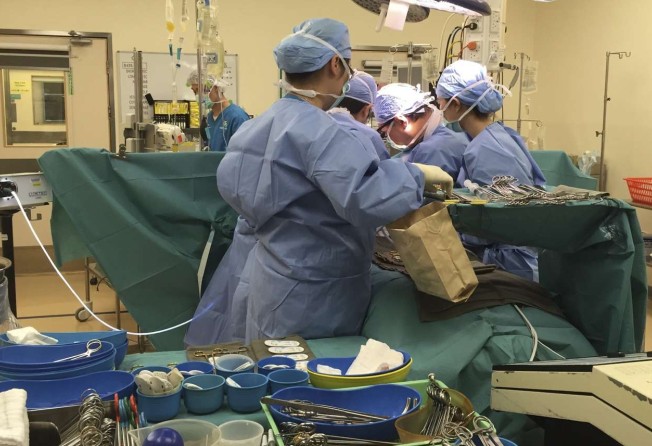Hong Kong’s selfless liver donor highlights the need for greater awareness of organ donation

Many severely ill people in Hong Kong in urgent need of an organ transplant may die before a donor can be found, as the organ donation rate in the city, even after death, is very low. Recently, a 17-year-old girl wanted to donate part of her liver to her dying mother. However, the Human Organ Transplant Ordinance says those aged under 18 cannot be organ donors.
All seemed lost until a 26-year-old clerk named Momo Cheng took the initiative to donate two-thirds of her liver to the girl’s mother. The brave and selfless act by Ms Cheng was met with profuse praise and admiration from the public.
Cheng and her family certainly deserve the highest praise and honour for making such a huge sacrifice. Other than saving a life, her act infused positive energy and a sense of mutual caring into our society. To recognise her contribution and mark its significance, I strongly suggest that the Hong Kong government consider awarding Ms Cheng , a role model for our society, with a medal of honour.
Filial piety is one of the most highly prized virtues in traditional Chinese society, highlighted in how the daughter of the patient wanted to save her mother by donating her liver. I fully understand that minors should be protected under the law. However, the laws should be flexible and reviewed as needed.
I believe that someone aged 16 or above, and both psychologically mature and physically suitable, should be allowed to give organs to a terminally ill close family member.
It will be a source of extreme suffering for anyone if they are deprived of the right to save the life of their loved one. I believe that a 16-year-old these days is mature enough to make such a decision and to understand the risks of donating an organ. On the other hand, I also understand why doctors may be averse to harvesting organs from live minor donors, even if they are close relatives, as they might think it goes against medical ethics.
That brings us back to the low rates of organ donation by the deceased in Hong Kong. Traditional Chinese feel the body must stay intact after death. But there is no point in burning useful organs to ashes, instead of using them to save lives.
In order to boost public awareness and acceptance of organ donation, I suggest that priority for transplant be given to patients who registered as donors. It is also time to amend the transplant ordinance to bring down the eligible donor age to 16, so that more lives are saved.
Kwok Tak-ming, Wong Tai Sin